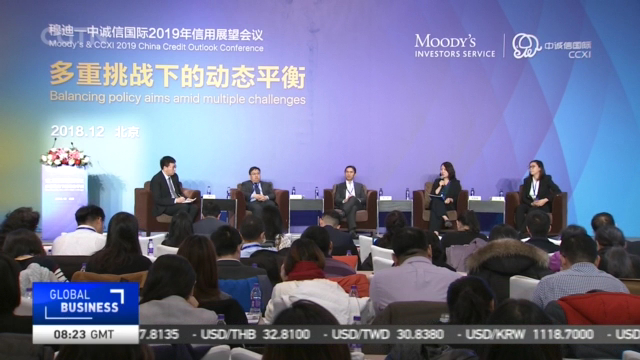
16:54, 07-Dec-2018
Chinese Financial Regulation: Balancing policy aims to safeguard system
Updated
16:30, 10-Dec-2018
03:47

Looking at China's financial system now. Recently regulators have just launched a draft guideline for establishing a list of key financial institutions that aims to create a Chinese version of global systemically important banks. The guideline also seeks to let those institutions better safeguard China's financial system. Let's take a look.
China's central bank has stated its intention to implement an international framework of total loss-absorbing capacity for China's global systemically important banks. A Moody's report says that government support will remain strong for those institutions in 2019. It also says that a successful implementation of the framework will fuel the development of China's non-bank institutional investor base for the domestic bond market.
LV HAN, VICE CHAIRMAN CHINA CHENGXIN INT'L CREDIT RATING CO. "Setting up a list of global systemically important financial institutions stems from quite an important lesson we take from the financial crisis. Interactions among institutions are becoming closer hence stronger management toward them would help better manage the whole financial system in case a next crisis comes. All through the years, the international experiences have proved this move's efficiency. Personally, I suggest the regulator would consider to include online payment platforms like Ant Financial Services and WeChat Pay, as the capital they absorbed now is large enough to have a huge influence on people's daily lives."
Experts were impressed about China's achievements this year in reducing overcapacity, curbing the growth of shadow banking, decreasing systematic risks and improving the efficiency of credit markets. They also have a positive view on the risk controls for China's financial system and the overall credit market.
YAN YAN, CHAIRMAN CHINA CHENGXIN INTERNATIONAL CREDIT RATING CO. "We forecast that the fiscal deficit ratio in a narrow definition would reach 3% for the next year. That's as economic growth slows down and we need more proactive fiscal policy to boost the economy's development. Authorities have launched more support for the private sector. Tools like Credit Risk Mitigation could strengthen the market's confidence to buy corporate bonds. They also could encourage banks to offer easier loan for corporations. So, overall we would see a declining credit risk for the coming year."
The issuing of special local government bonds is another important move by the Chinese Finance Ministry to implement proactive fiscal policy and alleviate debt risk. The quota for the bonds increased to 1.35 trillion yuan this year and markets widely expect that number to expand in 2019.
Experts tend to believe the biggest concern for authorities next year is to balance policy aims amid multiple challenges, especially the uncertainties from external factors. They say that the bright side is that there's a low possibility of systematic financial risks in 2019. CGTN.

SITEMAP
Copyright © 2018 CGTN. Beijing ICP prepared NO.16065310-3
Copyright © 2018 CGTN. Beijing ICP prepared NO.16065310-3